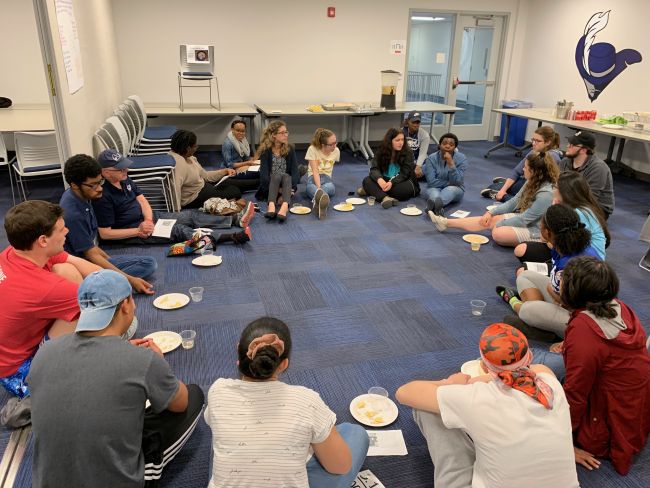
There are many people in this world who grow up with nothing. Children around the world are starving and living off one meal a day or less. Peter Mumo was one of those people. He grew up with little to no food according the World Food Programme.
The World Food Programme interviewed Mumo about his life and how it was growing up in poverty. Mumo said they were very poor and grew up in a family of eight.
“My father was a primary school teacher. This is one of the lowest paying jobs in Kenya,” Mumo told the World Food Programme. “We used to live on a single meal per day that consisted of a boiled mixture of maize and beans.”
Those who grow up in poverty do not get the right nutrients that they should through their meals. They usually have food that is full of carbs and nothing else. They do not get to have their vegetables and protein that are need for growing children.
According to the Food Aid Foundation one in seven people are hungry. With that being said one third of the world’s food is wasted. Global hunger is not caused by there not being enough food for everyone on this planet. According to DoSomething.org, “The world produces enough food to feed all 7 billion people, but those who go hungry either do not have land to grow food or money to purchase it.”
Cabrini University’s chapter of Catholic Relief Services just held its first Food Fast during Unity week in April. The student ambassadors of this organization created and prepared for this event.
When thinking about the United States people think about how unhealthy it is becoming. The average weight keeps going up and the population is becoming over weight and obese. According to Gain Health, two billion people are suffering from malnutrition and 1.9 billion people are suffering from obesity.
A leader of the event, Ixchele Ortiz, a freshman education major, is an ambassador who helped create this event. During the meetings the group split up into different committees to get ready for the event. Ortiz was a part of the education committee and researched what global hunger is, who is affected and why it is happening.
“Being part of the planning committee made me look forward to having deeper conversations from what we initially had during the time of planning for the event,” Ortiz said.
During the event Ortiz was put in the lower class, which was based upon the portrait of a poor family in Guatemala and what they eat. Students placed in this class were given rice and tortillas with “dirty” water.
“I learned a lot from being in the lower class, starting from personal experiences that were shared and to all the small things that we take for granted,” Ortiz said.
The conversations within each class gave an understanding of what global hunger is. The higher class was given a well-rounded meal with extras like sparkling cider and a waiter, the middle class was given lettuce wraps and rice with a soda, and the lower class was given rice and tortillas with water as stated before. It seemed that the lower class had the most in-depth conversation.
“We always have the option to change our food preferences depending on how we feel like eating. The people in the lower class don’t have this option. What is available to them is all they have,” Ortiz said. “They have no choice to whatever food they can afford. We tend to be picky at most times, but these people have actually bear to their lifestyle and consider themselves grateful with whatever’s set on their table.”
The lower class was given the worst treatment. They did not have plates to put their food on or silverware to eat the food. “Eating with our bare hands concerned a lot of us with sanitary issues. A lot of the people from the lower class don’t really have access to clean water to wash their hands,” Ortiz said.
The Food Fast is held to create awareness for global hunger because it is a cause not a lot of people think or talk about. “By being more aware of what’s going on around the world is important to me. My experience from this food fast helped me spread the awareness on my own. It also helps me reflect more on causes like this and to involve as many people as I can,” Ortiz said.


